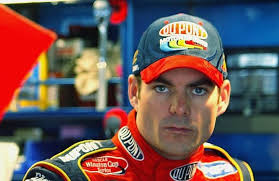In the roaring world of NASCAR, where tradition runs as deep as the tire tracks on the track, a young driver named Jeff Gordon emerged in the early 1990s and turned the sport on its head. He didn’t just win races he rewrote the narrative of what a stock car driver could be and what the sport could become. Jeff Gordon wasn’t just a champion. He was a revolution.From California Kid to Racing RoyaltyBorn in Vallejo, California, and raised in Indiana, Gordon’s background was far from the Southern stronghold that had long defined NASCAR’s culture. He came up through the ranks of open-wheel sprint car racing, not the dirt ovals of the Southeast. To some traditionalists, he was an outsider. But to the sport’s future, he was a beacon.When he debuted in the Winston Cup Series in 1992 at just 21 years old, he stood out. Young, clean-cut, and media-savvy, Gordon was a sharp contrast to the gritty, seasoned veterans that fans were used to. But it wasn’t just his image that caught attention it was his speed.The Rise of a LegendDriving the iconic No. 24 car for Hendrick Motorsports, Jeff Gordon exploded onto the scene. By 1995, just three years into his full-time career, he won his first Cup championship. He would go on to win four titles (1995, 1997, 1998, and 2001) and 93 races third most in NASCAR history. His dominance on tracks like Daytona, Talladega, and Indianapolis wasn’t just impressive; it was defining.Gordon blended raw talent with an uncanny ability to adapt. He was smooth on the wheel, aggressive when he had to be, and razor-sharp in his race strategy. His driving inspired a new generation of racers to study more, train harder, and treat racing like a science, not just a gut instinct.More Than Just a DriverBut Gordon’s true genius lay not only in what he did on the track but in how he changed the game off of it. He was one of the first NASCAR drivers to become a true mainstream celebrity. His good looks, charisma, and media fluency made him a marketing powerhouse. He appeared on talk shows, magazine covers, and even hosted “Saturday Night Live” a feat nearly unthinkable for a race car driver at the time.Corporate America took notice. Gordon’s long-standing partnership with DuPont and other major sponsors marked a shift in how the sport did business. He brought millions of new fans to NASCAR many of whom had never watched a race before.The Legacy That LingersJeff Gordon didn’t just drive fast he drove NASCAR into the modern era. He expanded the sport’s geographic and demographic reach. He brought a new level of professionalism, polish, and visibility to stock car racing. And even after his retirement from full-time racing in 2015, his influence continues to echo through the garage.As an executive with Hendrick Motorsports and a familiar face in the broadcast booth, Gordon is still shaping the sport he once ruled. His legacy is visible in the young stars who followed in his tire tracks drivers who grew up watching him, idolizing him, and dreaming because of him.In many ways, Jeff Gordon didn’t just change NASCAR. He redefined what it meant to be a racing icon.

